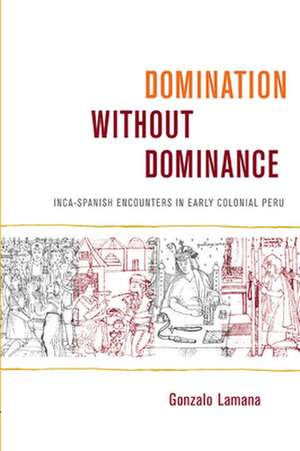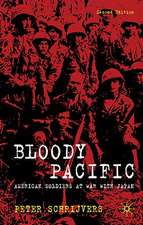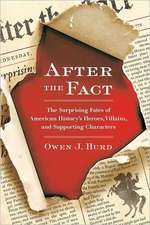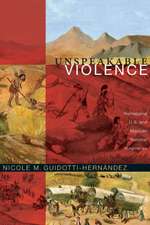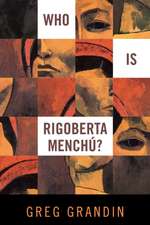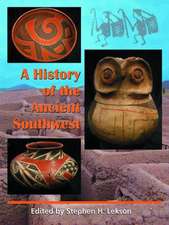Domination without Dominance – Inca–Spanish Encounters in Early Colonial Peru: Latin America Otherwise
Autor Gonzalo Lamanaen Limba Engleză Paperback – 14 dec 2008
Din seria Latin America Otherwise
-
 Preț: 195.84 lei
Preț: 195.84 lei -
 Preț: 161.02 lei
Preț: 161.02 lei -
 Preț: 218.61 lei
Preț: 218.61 lei -
 Preț: 301.59 lei
Preț: 301.59 lei -
 Preț: 261.93 lei
Preț: 261.93 lei -
 Preț: 231.22 lei
Preț: 231.22 lei -
 Preț: 264.26 lei
Preț: 264.26 lei -
 Preț: 302.36 lei
Preț: 302.36 lei -
 Preț: 265.20 lei
Preț: 265.20 lei -
 Preț: 262.32 lei
Preț: 262.32 lei -
 Preț: 191.54 lei
Preț: 191.54 lei -
 Preț: 240.90 lei
Preț: 240.90 lei -
 Preț: 299.29 lei
Preț: 299.29 lei -
 Preț: 301.38 lei
Preț: 301.38 lei -
 Preț: 211.33 lei
Preț: 211.33 lei -
 Preț: 261.18 lei
Preț: 261.18 lei -
 Preț: 239.76 lei
Preț: 239.76 lei -
 Preț: 265.59 lei
Preț: 265.59 lei -
 Preț: 237.47 lei
Preț: 237.47 lei -
 Preț: 305.46 lei
Preț: 305.46 lei -
 Preț: 265.79 lei
Preț: 265.79 lei -
 Preț: 169.48 lei
Preț: 169.48 lei -
 Preț: 263.29 lei
Preț: 263.29 lei -
 Preț: 298.70 lei
Preț: 298.70 lei -
 Preț: 302.19 lei
Preț: 302.19 lei -
 Preț: 324.80 lei
Preț: 324.80 lei -
 Preț: 264.43 lei
Preț: 264.43 lei -
 Preț: 238.39 lei
Preț: 238.39 lei -
 Preț: 383.63 lei
Preț: 383.63 lei -
 Preț: 264.26 lei
Preț: 264.26 lei -
 Preț: 236.67 lei
Preț: 236.67 lei -
 Preț: 306.99 lei
Preț: 306.99 lei -
 Preț: 236.10 lei
Preț: 236.10 lei -
 Preț: 268.68 lei
Preț: 268.68 lei -
 Preț: 300.62 lei
Preț: 300.62 lei -
 Preț: 335.67 lei
Preț: 335.67 lei -
 Preț: 304.31 lei
Preț: 304.31 lei -
 Preț: 308.90 lei
Preț: 308.90 lei -
 Preț: 307.95 lei
Preț: 307.95 lei -
 Preț: 264.64 lei
Preț: 264.64 lei -
 Preț: 315.64 lei
Preț: 315.64 lei -
 Preț: 269.27 lei
Preț: 269.27 lei -
 Preț: 327.73 lei
Preț: 327.73 lei -
 Preț: 262.14 lei
Preț: 262.14 lei -
 Preț: 262.32 lei
Preț: 262.32 lei
Preț: 261.38 lei
Nou
Puncte Express: 392
Preț estimativ în valută:
50.01€ • 52.41$ • 41.35£
50.01€ • 52.41$ • 41.35£
Carte tipărită la comandă
Livrare economică 12-26 aprilie
Preluare comenzi: 021 569.72.76
Specificații
ISBN-13: 9780822343110
ISBN-10: 0822343118
Pagini: 304
Dimensiuni: 156 x 232 x 21 mm
Greutate: 0.39 kg
Editura: MD – Duke University Press
Seria Latin America Otherwise
ISBN-10: 0822343118
Pagini: 304
Dimensiuni: 156 x 232 x 21 mm
Greutate: 0.39 kg
Editura: MD – Duke University Press
Seria Latin America Otherwise
Cuprins
AcknowledgementsSituated Interventions: Colonial Imprints, De-colonial Moves; 1. Beyond Exotization and Likeness: Alterity and the Production of Sense in a Colonial Encounter; 2. Christian Realism and Magicality. Reality-Making during Atahualpas Imprisonment; 3. Why Betting a Barrel of Preserves Can Be a Bad Thing To Do: Civilizing Deeds and Snags; 4. Illusions of Mastery. Manco Incas War and the Colonial Normal; 5. The Emergence of a New Mestizo Consciousness: An Unthinkable Inca; 6. Power as Moves: A Mid-1540s Repertoire of Flipping the Coin; 7. The End; 8. Glossary; 9. Bibliography; 10. Notes
Recenzii
Domination without Dominance is a theoretically historical and historically theoretical argument. Through his valiant and successful effort to learn from the Incas, Gonzalo Lamana shifts the geopolitics of knowledge, stepping back and disengaging from the basic epistemic principles on which the humanities and the social sciences are founded. His detailed analysis of the first two decades of encounters between Incas and Spaniards unveils how from then to today, historical narratives managed to tell half of the story as if it were the totality.Walter D. Mignolo, author of The Idea of Latin AmericaFar from contributing to the well-known story of European victories against overwhelming odds, this reinterpetation of the conquest of Peru portrays complex, human adversaries who each used their own cultural understandings in an effort to gain control over the other. Everyone who seeks to step outside the vision of the Spanish conquest imposed by the victors since the sixteenth century will find this study invaluable.Karen Spalding, author of Huarochirí: An Andean Society under Inca and Spanish RuleIn this bookthe very first ethnographic history of the so-called Conquest of the Incas, Inca and Christian protagonists negotiate not only who they are vis-à-vis one another but also and centrally, the terms with which they would recognize their relationship. Combining literary criticism, anthropology, and history, Domination without Dominance extends the historical archive of the period to the present, and through ethnographic-textual analysis of modern historiography, shows the Conquest as an event the conceptual politics of which linger today. This book is an important addition to archive studies, de-colonial scholarship, and cultural politics.Marisol de la Cadena, author of Indigenous Mestizos: The Politics of Race and Culture in Cuzco, Peru, 19191991Domination Without Dominance is an eloquent commentary on the confrontation between the structures of meaning imposed by the Spanish colonisers and their Incan wards between 1531 to 1550 in an encounter branded upon Western interpretation as a statement par excellence of European cultural superiority. The author aims to construct a new historical narrative that aims to move away from the colonialist cage of meaning in which accounts of what happened 500 years ago find themselves locked. Domination Without Dominance combines literary criticism, anthropology and history to offer an overgrown and nuanced detour for those scholars brave enough to leave the comfortable, linear highway which has given their peers a sense of direction in the journey towards an understanding of our shared past.- The Latin American Review of Books, March 09
"Domination without Dominance is a theoretically historical and historically theoretical argument. Through his valiant and successful effort to learn from the Incas, Gonzalo Lamana shifts the geopolitics of knowledge, stepping back and disengaging from the basic epistemic principles on which the humanities and the social sciences are founded. His detailed analysis of the first two decades of encounters between Incas and Spaniards unveils how from then to today, historical narratives managed to tell half of the story as if it were the totality."--Walter D. Mignolo, author of The Idea of Latin America "Far from contributing to the well-known story of European victories against overwhelming odds, this reinterpetation of the conquest of Peru portrays complex, human adversaries who each used their own cultural understandings in an effort to gain control over the other. Everyone who seeks to step outside the vision of the Spanish conquest imposed by the victors since the sixteenth century will find this study invaluable."--Karen Spalding, author of Huarochiri: An Andean Society under Inca and Spanish Rule "In this book--the very first ethnographic history of the so-called 'Conquest of the Incas,' Inca and Christian protagonists negotiate not only who they are vis-a-vis one another but also and centrally, the terms with which they would recognize their relationship. Combining literary criticism, anthropology, and history, Domination without Dominance extends the historical archive of the period to the present, and through ethnographic-textual analysis of modern historiography, shows 'the Conquest' as an event the conceptual politics of which linger today. This book is an important addition to archive studies, de-colonial scholarship, and cultural politics."--Marisol de la Cadena, author of Indigenous Mestizos: The Politics of Race and Culture in Cuzco, Peru, 1919-1991 "Domination Without Dominance is an eloquent commentary on the confrontation between the structures of meaning imposed by the Spanish colonisers and their Incan wards between 1531 to 1550 in an encounter branded upon Western interpretation as a statement par excellence of European cultural superiority. The author aims to construct a new historical narrative that aims to move away from the colonialist cage of meaning in which accounts of what happened 500 years ago find themselves locked. Domination Without Dominance combines literary criticism, anthropology and history to offer an overgrown and nuanced detour for those scholars brave enough to leave the comfortable, linear highway which has given their peers a sense of direction in the journey towards an understanding of our shared past."- The Latin American Review of Books, March 09
"Domination without Dominance is a theoretically historical and historically theoretical argument. Through his valiant and successful effort to learn from the Incas, Gonzalo Lamana shifts the geopolitics of knowledge, stepping back and disengaging from the basic epistemic principles on which the humanities and the social sciences are founded. His detailed analysis of the first two decades of encounters between Incas and Spaniards unveils how from then to today, historical narratives managed to tell half of the story as if it were the totality."--Walter D. Mignolo, author of The Idea of Latin America "Far from contributing to the well-known story of European victories against overwhelming odds, this reinterpetation of the conquest of Peru portrays complex, human adversaries who each used their own cultural understandings in an effort to gain control over the other. Everyone who seeks to step outside the vision of the Spanish conquest imposed by the victors since the sixteenth century will find this study invaluable."--Karen Spalding, author of Huarochiri: An Andean Society under Inca and Spanish Rule "In this book--the very first ethnographic history of the so-called 'Conquest of the Incas,' Inca and Christian protagonists negotiate not only who they are vis-a-vis one another but also and centrally, the terms with which they would recognize their relationship. Combining literary criticism, anthropology, and history, Domination without Dominance extends the historical archive of the period to the present, and through ethnographic-textual analysis of modern historiography, shows 'the Conquest' as an event the conceptual politics of which linger today. This book is an important addition to archive studies, de-colonial scholarship, and cultural politics."--Marisol de la Cadena, author of Indigenous Mestizos: The Politics of Race and Culture in Cuzco, Peru, 1919-1991 "Domination Without Dominance is an eloquent commentary on the confrontation between the structures of meaning imposed by the Spanish colonisers and their Incan wards between 1531 to 1550 in an encounter branded upon Western interpretation as a statement par excellence of European cultural superiority. The author aims to construct a new historical narrative that aims to move away from the colonialist cage of meaning in which accounts of what happened 500 years ago find themselves locked. Domination Without Dominance combines literary criticism, anthropology and history to offer an overgrown and nuanced detour for those scholars brave enough to leave the comfortable, linear highway which has given their peers a sense of direction in the journey towards an understanding of our shared past."- The Latin American Review of Books, March 09
Notă biografică
Gonzalo Lamana
Textul de pe ultima copertă
"In this book--the very first ethnographic history of the so-called 'Conquest of the Incas'--Inca and Christian protagonists negotiate not only who they are vis-a-vis one another but also, and centrally, the terms with which they would recognize their relationship. Combining literary criticism, anthropology, and history, "Domination without Dominance" extends the historical archive of the period to the present, and through ethnographic-textual analysis of modern historiography, shows 'the Conquest' as an event the conceptual politics of which linger today. This book is an important addition to archive studies, de-colonial scholarship, and cultural politics."--Marisol de la Cadena, author of "Indigenous Mestizos: The Politics of Race and Culture in Cuzco, Peru, 1919-1991"
Descriere
Complicates the Spanish conquest of Peru
